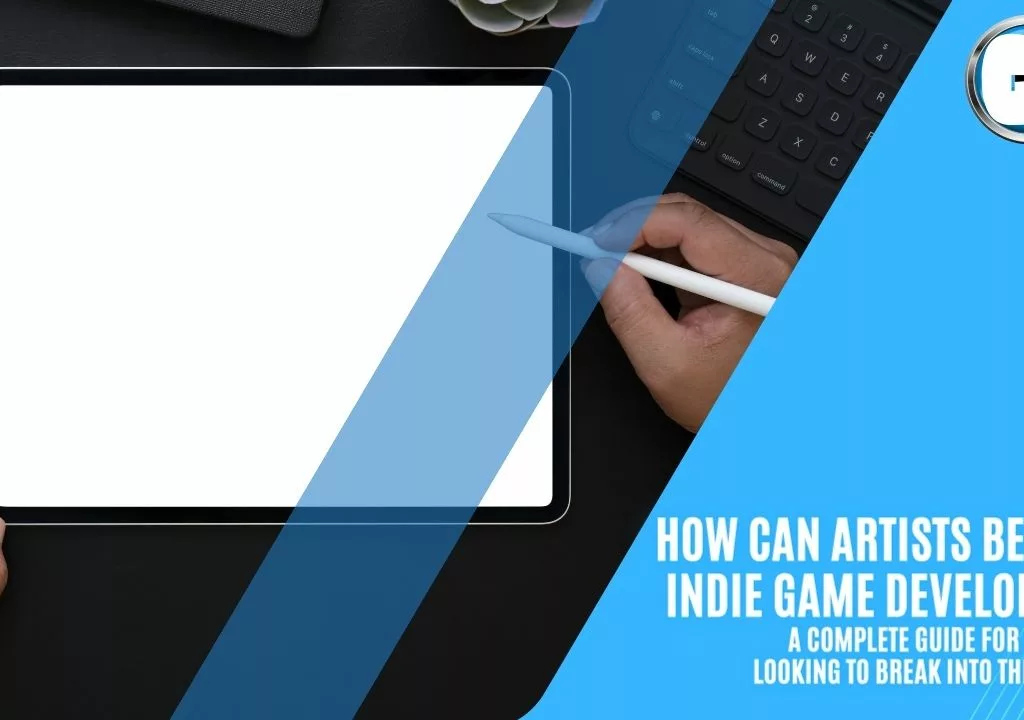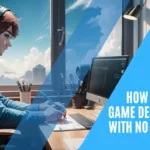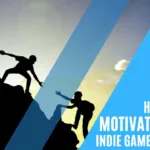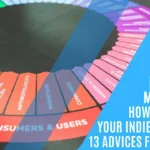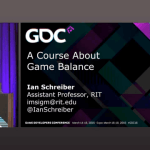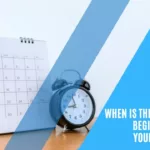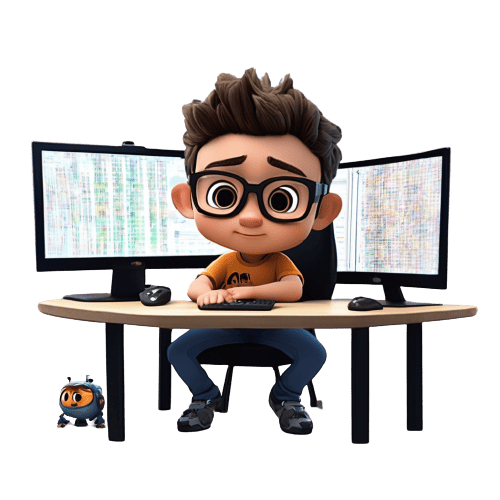The indie game development scene is booming, offering many exciting opportunities for creative minds to get involved in building games. However, transitioning from other creative fields like, How can artists become Indie Game Developers, still requires gaining some new technical skills. In this comprehensive guide, we’ll explore the various paths creatives can take, provide industry tips and advice, highlight tools that lower the barrier to entry, and more. By the end, you’ll have a solid understanding of how to transition into indie game development yourself.
Contents: How can artists become Indie Game Developers

The Options for Creatives: Join a Team or Go Solo?
There are two main avenues for creatives interested in games – joining an established indie studio as part of a team or venturing out on your own as a solo developer. Both have their pros and cons:
| Joining a Team | Solo Development |
|---|---|
| Pros | Pros |
| Collaboration with other talents | Complete creative control |
| Help and mentorship from experienced devs | Keep all profits from your work |
| Share workload and responsibilities | Flexible schedule |
| Potential for full-time employment | Gain skills at your own pace |
| Cons | Cons |
| Less control over creative vision | Carrying the entire workload alone |
| May need to relocate for studio | Require diverse range of skills |
| Potential crunch periods near deadlines | Risk of burnout without breaks |
| May need to prove yourself initially | Less financial/creative feedback early on |
As the table shows, joining a team offers the benefits of collaboration and mentorship, while going solo means full creative freedom. Both have ups and downs, so creatives need to weigh their options carefully based on skills, personality fit, and goals.
Going forward, we’ll explore best practices and resources for thriving down either path. The key takeaway is that passion, adaptability, and a willingness to learn are most important for creatives looking to transition.

Preparing to Join an Indie Team
For creatives wanting to leverage their strengths within a collaborative studio environment, here are some tips:
Build a Game-Focused Portfolio
An impressive portfolio showcasing work directly relevant to games is crucial for snagging your first gig. Develop conceptual art, character designs, environments – anything to demonstrate your style and skills.
Learn Game Engines
Get familiar with common engines like Unity or Unreal Engine through their extensive free learning resources. Understand basic programming principles even if you don’t code directly.
Consider Hybrid Roles
Roles like concept artist, animator, or UI/UX designer allow creatives to contribute artistic skills while collaborating closely with programmers. Technical artist roles also blend art and code.
Build a Developer Network
Attend industry events online and IRL. Follow studios on social media, contribute to open source projects or game jams. Make valuable connections in the community.
Pursue Formal Education
Consider game-focused art or design degree programs to further build technical skills and gain mentorship from veterans in the field. Example programs to research include:
- Academy of Art University (San Francisco, CA)
- Art Institute of California – Orange County ( Santa Ana, CA)
- Savannah College of Art and Design (Savannah, GA)
Start Volunteering
Offer your services to small independent studios or mod teams for free or low pay. This gets experience and industry recommendations for future paid opportunities.
Putting these tips into action allows creatives to transition into the indie realm with a polished portfolio and skillset ready to meaningfully contribute as part of a team. Developing relevant technical skills alongside artistic talents is key. With dedication, these preparatory steps can lead to exciting full-time careers in games.

Tools for Solo Indie Game Development
Going solo as an indie developer provides complete creative freedom but also requires taking on broader responsibilities alone. Thankfully, a plethora of useful tools now exist to lower the technical barrier to entry:
Visual Game Engines
- GameMaker Studio: A popular 2D game engine with its own visual language called Drag-and-Drop that provides gameplay mechanics without code.
- Construct 3: A powerful HTML5 engine that supports both visual scripting and coding. Great for beginners and professionals alike.
- Stencyl: Focuses on intuitive, visual game development. Supports publishing to mobile, desktop and web platforms.
- GDevelop: Open-source 2D engine with nodes, events and conditions that mimic code via visual scripting. Free for personal and commercial use.
Asset Store Resources
Asset stores provide affordable pre-made art, sound effects, scripts and other game components to assemble creative projects efficiently. Example marketplaces include:
- Unity Asset Store
- Unreal Engine Marketplace
- itch.io Assets
- OpenGameArt.org
- Kenny.nl
No-Code Game Builders
For those who want to avoid coding entirely, game building IDEs handle everything visually:
- GameSalad: Popular tool with drag-and-drop creation for 2D/3D games across platforms. Some coding may be necessary later on more advanced projects.
- GameMaker: Part visual IDE, part engine. Supports rapid prototyping without programming knowledge required.
- Construct 3: As an engine, it allows for visual scripting only if desired. More powerful than pure builders.
Armed with these visual tools, even those without traditional programming or art skills can now successfully build complete indie games through experimentation and tutorials alone. Combining these technologies lowers the technical hurdle tremendously.

Best Practices for Solo Indie Dev Success
While tools remove many challenges, solo devs must still develop strong fundamentals to thrive independently over the long-term. Here are some key strategies:
Start Small and Iterate Frequently
Begin with bite-sized prototype projects rather than grandiose visions. Iterate prototypes rapidly to refine mechanics based on early player feedback.
Engage Communities for Support
Groups like Reddit gamedev, Discord servers and YouTube offer advice, beta testing and encouragement. Contribute feedback to others seeking help too.
Focus on One Project at a Time
Juggling too many concepts dilutes effort and delays any from being completed. Finish polished games for distribution rather than hopping between half-baked ideas.
Learn Design Principles and Best Practices
Study golden standards like mechanics-focused clarity, tight control schemes, responsive feedback loops and balancing difficulty curves.
Market and Promote Continuously
Distribute builds and content via social media, mailing lists, asset stores and game sites/aggregators from day one. Building an audience pays dividends.
Take Regular Breaks to Avoid Burnout
Solo development is draining creatively and mentally if doing it non-stop. Ensure to unplug, recharge, and explore other passions periodically.
Consider Publishing on Multiple Platforms
While desktop may seem easiest, many players are mobile-focused today. Evaluating tools to deploy across PC/Mac/Linux/Mobile opens wider audiences.
Adhering to these best practices instills discipline invaluable for the independent lifestyle. Prototyping early and often, engaging communities, and avoiding burnout through balance are especially critical for solo dev success in the indie sphere.

Making the Leap into Indie Game Development
Taking the plunge into any new creative field carries inherent risks but also immense rewards. Here are a few inspiring quotes from successful indie devs to provide motivation:
“Don’t let lack of experience paralyze you. Experience comes from doing, not thinking about doing.” – Braid creator Jonathan Blow
“Start small, experiment, and iterate constantly based on feedback. Focus on continually putting out minimum-viable versions of your game idea at a steady pace.” – Hollow Knight developer Team Cherry
“Share your work early on social media, game sites, and subreddits. Engage with other devs – they want to help each other succeed! The community will inspire and support you.” – Celeste creator Maddy Thorson
“Treat each game as a learning experience whether it succeeds commercially or not. Analyze why certain mechanics/story elements clicked with fans and why others didn’t.” – Undertale creator Toby Fox
The takeaway? Believe in your creative vision, constantly learn from your peers, accept feedback gracefully, and stay determined through failures and successes alike. With hard work, passion and an experimental mindset, creatives from any background can gain the technical skills needed to carve their own path in indie development.
Making the Transition – A Summary
To summarize the key points covered:
- Consider joining an indie studio team for mentorship or going solo with complete control using visual tools. Weigh the pros and cons of each path.
- Build a portfolio showcasing game-relevant art, learn engines, find hybrid roles, enroll in focused programs, and volunteer to prepare for studio jobs.
- Visual engines, asset stores, and no-code builders dramatically lower the technical skill floor for solo work through experimentation.
- Follow best practices like frequent prototyping,
- Follow best practices like frequent prototyping, community engagement, focusing on one polished project at a time, continuously learning design principles, and marketing your efforts.
- Take breaks to avoid burnout from the intense solo workload and mental demands of development. Balance is key.
- Consider how to reach wider audiences by publishing to multiple platforms like desktop, mobile, and the web.
- Draw inspiration from successful indie veterans who took risks, iterated constantly, shared their progress openly, and learned from both successes and failures.
- The transition is challenging but extremely rewarding. Keep the end goal of realizing your creative visions through games as motivation during difficult periods.
Regardless of the path chosen – be it joining a team, going solo, or a blend of both – the most crucial attributes for creatives making the jump are passion for the interactive medium of games, a desire for continual learning, and an experimental spirit. With dedication to combining technical and creative skills over time, artistic professionals can absolutely thrive as vital contributors within the booming indie game industry.

Getting Started on Your Journey Today
For any creatives just starting to explore the possibilities, here are a few immediate next steps to begin your indie game development journey:
- Download a few free visual tools like GameMaker Studio, Construct 3 or GDevelop to experiment with firsthand. Play around building small minigames.
- Browse popular asset stores to spark design ideas and evaluate the resources available. Imagine assembling your creations.
- Follow indie studios, solo devs and artists on social platforms for daily inspiration and advice. Join relevant communities.
- Play many different indie titles across genres to analyze mechanics, visual styles and narratives you respond to or find inspiring.
- Consider taking an introductory online course on Unity or Unreal to dip your toes in more technical aspects.
- Search for game development meetups in your local area to attend in-person and connect with others pursuing similar passions.
- Contribute to a small scoped game jam project as your first taste of collaboration if a team environment appeals more right now.
The most important thing is to get started creating rather than over-planning or worrying you aren’t ready yet. By experimenting hands-on, you’ll quickly build up practical experience to accelerate your path forward. Stay determined and always make time for creative play – that mindset will serve you well in this exciting career journey ahead!
Conclusion: How can artists become Indie Game Developers
In closing, indie game development truly has something compelling to offer creatives from all artistic backgrounds. With the abundance of user-friendly tools now available, technical barriers that may have once deterred are fading away. What remains most important is your passion, drive to constantly learn new skills, and commitment to seeing creative concepts brought to life through the interactive medium of games.
If you found this guide to transitioning from other creative fields into indie development insightful – or are simply curious to discuss your own dreams of becoming a self-sufficient game maker – please feel encouraged to leave a comment below. I’d love to hear your thoughts, answer any other questions, and help connect you with useful indie dev resources as able on your journey. You’ve got this – now go start creating!
If you want to get more interesting contents on this topic or others, check out our blog.
Frequently Asked Questions ( FAQ) How can artists become Indie Game Developers
Q: How can I become an indie game developer?
A: To become an indie game developer, you will need to acquire skills in game development, such as programming, game design, and graphic design. It is also helpful to have a strong passion for gaming and a willingness to learn new technologies.
Q: How do I become a game artist?
A: To become a game artist, you need to develop your artistic skills, specifically in creating graphics for games. Familiarize yourself with 2D and 3D software, and learn about art styles commonly used in games. Building a portfolio of your work will help you showcase your skills to potential employers or collaborators.
Q: What is an indie game developer?
A: An indie game developer is an independent game developer who creates games without the financial support of a major publisher. They often work on smaller projects and have more creative freedom compared to developers at larger game studios.
Q: How can I find artists to work on my game?
A: There are several ways to find artists for your game. You can join online communities and forums focused on game development, such as the Game Development Stack Exchange, where you can connect with artists looking for projects. You can also reach out to local art schools or use freelance platforms to hire artists.
Q: What is programmer art?
A: Programmer art refers to placeholder art created by developers who do not have professional artistic skills. It is often used as temporary art until a skilled artist can create the final assets for the game.
Q: Can I make a game even if I can’t draw?
A: Yes, you can still make a game even if you cannot draw. There are many professional artists available for hire who can create the art assets for your game. Alternatively, you can use pre-existing art assets or explore art styles that do not require advanced drawing skills, such as pixel art.
Q: How can I work on my game if I’m not a good artist?
A: If you are not a skilled artist, you can collaborate with other talented individuals who can handle the art aspects of the game. Building a development team with members specializing in different areas, such as programming, game design, and art, can help ensure a well-rounded game development process.
Q: How important is the art style in a game?
A: The art style of a game can greatly impact its visual appeal and overall player experience. It helps set the mood, convey the game’s theme, and attract players. A visually appealing and cohesive art style can make your game stand out and leave a lasting impression on players.
Q: How do I create concept art for a game?
A: Creating concept art for a game involves visualizing and sketching ideas for characters, environments, and objects that will be included in the game. This art helps convey the design and aesthetics of the game to the development team and serves as a reference for creating final assets.
Q: What are some tips for indie game developers?
A: Some tips for indie game developers include starting with small projects to gain experience, focusing on creating a unique and enjoyable gameplay experience, seeking feedback from players and peers, and utilizing online resources and communities for support and knowledge sharing.
